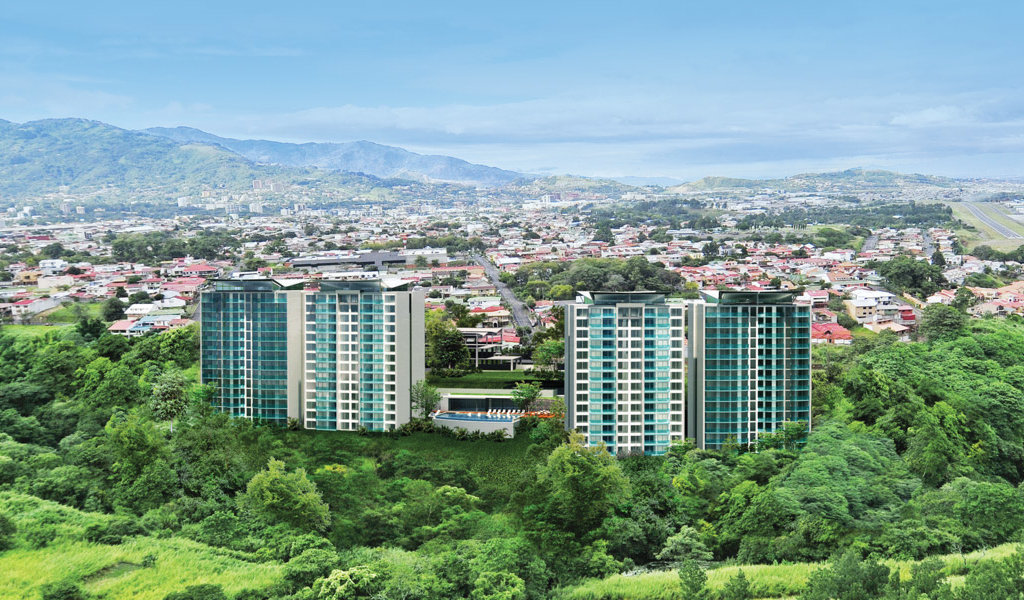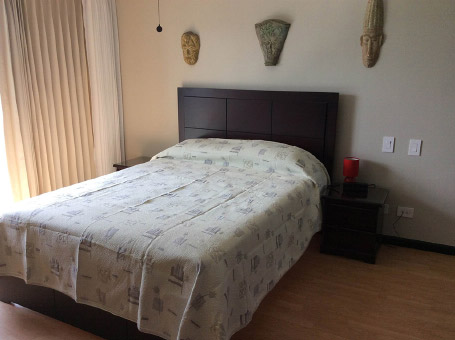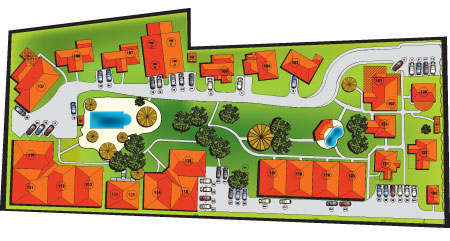COMMENTS
1. Ann Bender: Wow... here we go again... incredible... I doubt she will be found and/or extradited back to CR.
2. UBER: Still going strong despite the Red Taxi opposition... and they continue to win the praise of those who use them... and the Red Taxis continue to earn their despise.
3. Pension Reform: Great idea but it will never happen... perhaps a small... very small... percentage might be drained off to the poor but not much more than a Starbucks lattee.
4. Karla... The guard will be convicted... he's Nicaraguan... and from what I read, there had to be more people involved than just him...
1. Will They Successfully Bring Ann Bender Back to Costa Rica for a Fourth Murder Trial
Albert Einstein once said, “Insanity is doing the same thing over and over again – and expecting different results.”
This week Costa Rica’s Justice Department and Organismo de Investigacion Judicial (OIJ), announced through press releases and wanted posters that they are once again on the hunt for the American widow of John Felix Bender where they are looking at putting her on trial for the 4th time. They have accused Mrs. Bender of murdering her husband in cold blood, in their marital bed, in the year 2010, at their home in Florida de Baru, southern Costa Rica.
For those who are new to Costa Rica or who have been sleeping under a rock, this case is one of the most provocative murder cases Costa Rica has ever known. John and Ann Bender came to Costa Rica with $600 million dollars, intending to build a nature reserve. They dreamed of discovering new flora and fauna, new tropical medicines, and of resolving their own mental health issues. They both suffered from bipolar disorder. Things did not work out as planned.
John Bender was found with a single bullet wound to the back of his head. He died instantly. Ann was sleeping at his side, and claimed John had brought his gun to bed, and used it to kill himself. He had repeatedly threatened to suicide since they arrived in Costa Rica. The crime scene was total chaos, few efforts were made to preserve evidence. Forensic experts familiar with the case were quoted as saying, “Forensic Fiasco: that’s the only way to describe this case. Granted, forensic science has not progressed as far in Central America as in the US and Europe, but handling of evidence in this case was so unprofessional, it will be virtually impossible to determine what really happened.”
There were three trials trying to make sense of what really did happen to John Bender that fateful night. His widow’s passport was confiscated, barring her from leaving the country. Members of her family came to Costa Rica in support of her, along with news teams from every possible media outlet known to man. Everyone from the ambulance driver to the pet caretaker testified at trial. The results were inconclusive.
Unlike most countries, Costa Rica has no laws against double jeopardy. Ann Bender could be tried dozens of times until the Justice Department gets the desired verdict. They claim they have lost track of her whereabouts, have no record of her having ever left the country. Her friends watched her get on the plane bound for the USA; they are all very sure she has left, and won’t be back.
Ann’s lawyer, Fabio Oconotrillo, is in Europe on vacation this week, but promises a strong response to this new accusation when he returns. Ann’s family was unavailable for comment.
Complete coverage of this saga may be found in back episodes of The Star, 48 Hours, CNN News and CBS News which can be seen here. The Costa Rica Star had a reporter at all three trials for complete coverage. The book “Crazy Jungle Love”, about the tragic love story of the Benders, is available for purchase through The Star, or on Amazon and Kindle.
A parallel case of perhaps of greater interest is the disappearance of the Bender’s attorney, Juan de Dios Alvarez. Much of the Bender fortune disappeared with him. Authorities have also lost track of him (wink), but it is widely known that he is living like a king in Nicaragua. It would be much easier to extradite Alvarez from next door, and subject him to four trials for alleged swindle and larceny. That trial would not be as jazzy and sexy as retrying Bender’s widow, but it might provide some justice at last.
2. Over 971,000 People Use UBER in Costa Rica
Uber Costa Rica has continued its growth over the years despite the opposition of red taxi drivers and the lack of proper regulation. The company announced that since it began operations in Costa Rica in August 2015 it has accumulated over 971,000 users and 28,000 drivers.
“The platform represent an important source of additional income for over 28,000 associates and their families that have found in this app an alternative to face the cost of life and the difficult economic climate that closed 2019 with a unemployment rate of 11.4%, according to data by INEC (National Institute of Census and Statistics), one of the highest in Latin America”, pointed out Carolina Coto, communications manager for Uber in Central America.
The last time Uber revealed data for the country in September 2018, it reported close to 22,000 associates and 783,000 users.
According to the open letter published, Uber has invested over $30 million in Costa Rica, where it operates its Excellence Center for Central America and employees 800 people, over 50% of them women.
“From Uber, we see optimistically the process of dialogue regarding bill 21.587 which is being discussed in the Economic Commission. This initiative was presented by deputies of multiple political parties represented in the Legislative Assembly, hoping to reach a balance after a long process of conversation and debate in which technical criteria of government entities and the interested parties has been provided for over one year”, stated Coto, “Costa Rican law should respect the right to choose, not generate arbitrary barriers that affect the access to financial opportunities for those that seek a source of income in platforms such as Uber, promote competition, benefiting the user and the entire transportation ecosystem (…)”, she concluded.
3. $21-plus million saved on pensions going to fight poverty, says government
The government announced that it is working on the design of a bill that would be presented to the congress to use an estimated $21,314,952 in savings in luxury pension reductions to help the poorest population.
According to the government, the bill's goal is adding an article to the Law No. 9796, "Law to redesign and redistribute resources for solidarity social contribution."
With this modification, the savings generated by the reduction of luxury pensions could be transferred to existing programs that help people with the lowest incomes in the country, said the government.
According to President Carlos Alvarado, getting the approval of that bill would help take care of the most vulnerable population that has already been identified and manage a more efficient redistribution of public resources.
In Costa Rica, the government has a list of families with low incomes, known as Registry of State Beneficiaries. In that database are listed the names, locations and income level information of the poorest people and families in the country. Based on that information the government develops and distributes the social assistance programs.
According to the data provided by the government, with the recent approval of Law No. 9796, to cut luxury pensions, the annual savings were increased from $9,333,701 to $ 30,648,654.
But this bill will face a long period of analysis and discussions in congress before its approval. For that reason, there is no estimate of when the savings generated by the reduction on luxury pensions could be assigned to social assistance programs. In addition, there remains the possibility of civil suits to reverse the aim of the law.
In October the 2019 National Household Survey, developed by the National Statistics Institute, reported the poverty index is 21%, a figure that shows no changes compared to 2018.
"This 21 percent equals 336,000 families in poverty in the country," said the institute in its report.
According to the institute, the families that are in poverty are those with incomes below the poverty line index, which is established at ¢112,317 colones per month, about $193 for families living in the urban area.
In the case of families living in a rural area, the poverty line is income less than ¢86,353 per month, about $148.86.
In addition, the extreme poverty line is also established when the family's income is below ¢50,618 per month. That is about $87.26 for the urban area.
In the case of families living in rural areas, the poverty line is monthly income less than ¢42,117 per month, about $72.6.
According to the study by geographical area, urban poverty reaches 19.8%, while poverty in rural areas is 24.2%. Both data do not show significant changes compared to 2018.
In addition, extreme poverty, which are those households whose per capita income is not enough to at least meet basic food needs, was 5.8 percent. This is equivalent to 93,542 families in situations of extreme poverty, the statistical institute estimates.
A part of the study is the Multidimensional Poverty Index, which consists of access to basic needs such as health, education and housing, among others.
For example, among the shortcomings in poor households, the lack of medical services is the highest percentage. This means that 62.8 percent of poor households do not have access to medical services. This equals 187,000 families.
The complete data of the study can be reached in Spanish at the National Institute of Statistics site.
4. Trial in murder of U.S. citizen Carla Stefaniak's to start this month
The trial for the murder of the U.S. citizen Carla Stefaniak was announced to start on Monday, Jan. 27, at the Criminal Court in Pavas west of San José.
According to the case, the victim's father and the owners of the villa where Ms. Stefaniak's body was found are among the witnesses to testify at the trial.
In February the Prosecutor's Office opened the file on the murder case of Stefaniak, who was killed Nov. 28, 2018. Her body was found Dec. 3, 2018, in a wooded area near the villa in Escazú in San José, where she had been staying.
The opening of the evidentiary file was in the Pavas Criminal Court in the presence of the lawyers of the victim's family, José Rivera and David Hernández. Also attending were specialists in forensics and the suspect of the crime, a man with the surnamed of Espinoza-Martínez.
After attending court session, attorney David Hernandez said that among the evidence included was the suspect's cell phone where lawyers will have access to see a file of "photos, recorded messages, written messages and videos."
The man suspected of the crime is a Nicaraguan who was the security guard at the Villa. According to the prosecution’s thesis, the motive for the murder was a sexual attack. Espinoza-Martínez is in pre-trial detention.
Carlos Caicedo, Stefaniak's father, held a press conference in December 2018 when he was in Costa Rica, where he said that he hopes that justice will be done and that those responsible for the murder will be punished.
"The police investigation does not comfort me in any way, but I want the authorities of this government, specifically the courts of justice, to catch those responsible for this abominable and terrible crime," said Caicedo.
Also in January 2019, the Municipality of Escazú confirmed that the villa where the victim had been staying and where her body was found was closed because the owner does not have the necessary permits allowing them to run the B&B to offer accommodations to tourists.
Carlos Bejarano, the spokesperson of the municipality, confirmed, "the place had not updated the legal license to offer tourism services since 2013. So it was closed."










